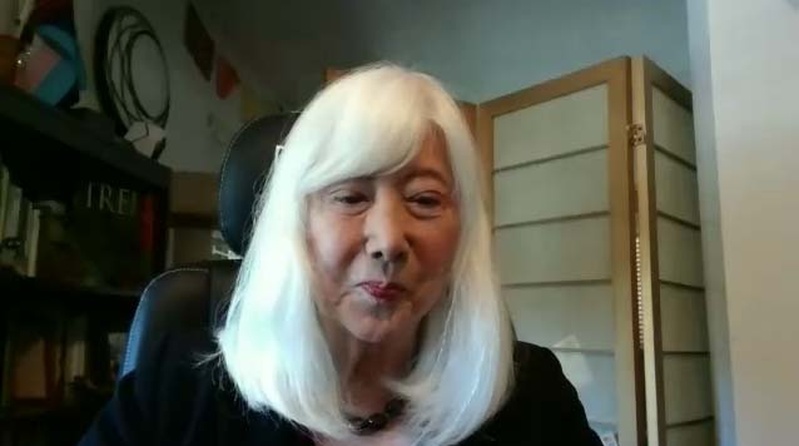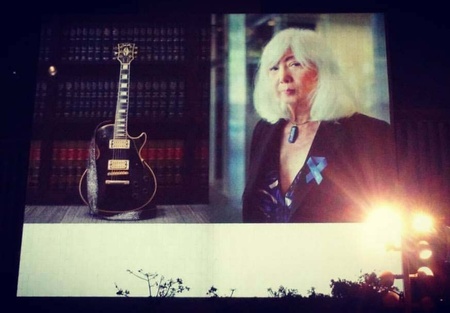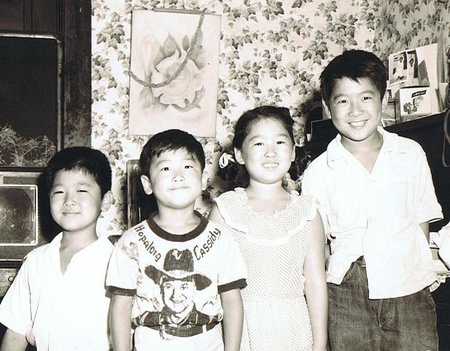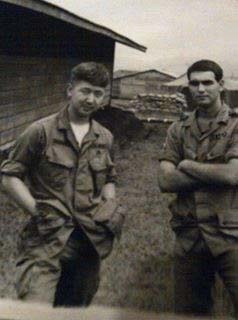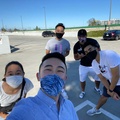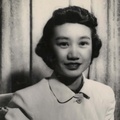“What we do for money will support us,
what we do for free will define us."– Mia Yamamoto
Mia Yamamoto is a Japanese American, transgender attorney who has faced adversity throughout her life, but never backed down from it. Her lifelong commitment to equality and civil rights has made her a leader within the field of law and social justice. At a time when there were very few Japanese American lawyers working within the criminal justice system, she stood up for Japanese Americans and all minorities, to bring them together and to amplify their voices within their communities, in their quest for equality in social justice.
Mia Yamamoto’s life began in 1943, when she was born in the Poston War Relocation Center in Arizona. Yamamoto is of the Sansei generation, and although she does not remember any of her time in the concentration camp, she witnessed the oppression that her family faced through incarceration and learned at a very young age about the inequalities that the Nikkei community has experienced.
When the incarceration began, Yamamoto’s father was one of the few who spoke out about the injustices the Japanese Americans were subject to during this period. At the time, there was not much that the Japanese American community could do to fight the unconstitutional incarceration, but seeing that her father was one of the few people that stood up against the injustice left an impact on her. His courage to stand alone, along with the passion that he displayed, (which continued even after incarceration,) became a defining moment for her and her quest for equality and justice.
Growing up in a diverse community also helped shape her views on racial equality. Like many Japanese Americans, after the World War II incarceration, she and her family moved to Orange County and later to the East Los Angeles area. In East Los Angeles, Yamamoto grew up in a neighborhood that consisted of many Mexican American and African American families, which was an influential part of her upbringing. In fact, her mother was heavily influenced by Mexican American culture and even spoke Spanish fluently. In addition, her older brother was a part of a local Mexican American gang. Through her brother’s involvement, Yamamoto saw how the Mexican American community stood up for those who were treated unfairly and confronted individuals who perpetrated violence or injustice. At an early age, this was something she admired, because there were not many groups or organizations that were able to address, confront, or protect individuals who were subject to racial injustices.
Coinciding with that was Yamamoto's experience of growing up with many African American friends. One of her best friends was her African American locker mate, Columbus, and the two friends did everything together. As life experiences and individuals can have an influence on one’s outlook on life, one day, a casual conversation with Columbus about their ethnicities changed her perspective on individual freedoms in America.
Yamamoto asked Columbus why Black people, unlike Japanese Americans, often “broke into song” and danced down the streets, like in the MGM musicals of that time. Columbus responded by saying, “You know Yamamoto, when you’re Black, everybody's going to be down on you. You could be the greatest person and they will be down on you, you could be a terrible person and they going to be down on you, so you can do whatever you want because people are going to be down on you anyway, so why not dance and sing down the street.” Having heard this, Yamamoto realized that freedom was not the ideal utopia that was promised to everyone, and when it came to individual freedom, there were differences that needed to be addressed. Yamamoto explained it to me as, “You’re free because you’re not free, you’re free because everyone's going to hate you anyways.” Having gained this new perspective on freedom and civil liberties, she aspired to change things for those who may feel that they are treated differently, and dedicated her career to championing equality and social justice for everyone.
When it was time to attend college, Yamamoto first enrolled at Los Angeles City College. In her first year at LACC, Yamamoto finished her first and second semester with all F’s and was kicked out of the school. However, a year later LACC admitted her on academic probation, but she needed to receive all A’s in order to get off of it. With this second chance, Yamamoto was determined to do whatever it took to get off of academic probation. During that time, she surrounded herself with students that were serious about their education and began studying with them. Through her own hard work and dedication, she was able to make a comeback and received all A’s.
From then on out, Yamamoto continued to excel academically, which led her to attend California State University, Los Angeles. At Cal State LA, many of her professors were brilliant and creative, and ultimately helped her rethink her perspective on social justice. Yamamoto had taken many English and Political Science classes where she was encouraged to challenge the norms in society. Challenging those norms was what she fought for, because the road to racial equality was not easy. Yet while in college, she still experienced a lack of sensitivity towards minority groups. Yamamoto explained that many of her professors had no understanding of how their thoughts and words could hurt those around them.
Yamamoto remembered how, on the day that Malcolm X was assassinated in 1965, one of her professors mocked the way he had died, and in that moment Yamamoto and her classmates were frozen in shock by the insensitivity of this remark. Yamamoto felt a surge of discomfort, which made it difficult not to say anything, and remembered looking at her professor and recognizing the absence of care or understanding, that her professor had for African Americans. Again, Yamamoto had witnessed another example of racism, which further motivated her to do more to address social justice.
Her life experiences and her quest for equality led her into a career in law. When Yamamoto joined the army after college in 1966, to serve in the Vietnam War, the racial inequality that she experienced was even worse. She was shocked by the bureaucracy, the lack of equality, and the white preference that permeated the Army ranks. Anti-Black racism created a clear divide within the army and Yamamoto longed to leave. She believed that the army was, in fact, not a place for liberation and had harmed the country of Vietnam in many ways. The war left wounds on both North and South Vietnam that still have not healed to this day. During our interview, Yamamoto made it a point to apologize for her participation in the army, and expressed that there was so much unnecessary killing of both American and Vietnamese people, and that there were other ways to promote peace and understanding.
After Yamamoto finished her time in the army, she immediately enrolled in law school at University of California, Los Angeles (UCLA). At the time, there was a severe lack of Asian students at the school, so she co-founded the Asian Pacific Islander Law Student Association. This was the first Asian American law student association at UCLA.
She recalls that by the time she graduated, there had been about nine Asian students in the whole school. This lack of Asian students paralleled the lack of Asian representation in the community, so she and a few other concerned students marched into the Dean’s office and demanded that more spots be made available for Asian students. After a conversation with the Dean, they were able to procure two more seats for Asian students to attend the law school.
Ms. Yamamoto’s efforts not only strengthened the Asian American voice in the academic setting, it also brought all students together for a common cause. From her efforts to gain more representation for Asians, came the greatest achievement of all—unity among all minority students at the school. While fighting for more Asian representation, Yamamoto collaborated with the Chicano Law Student Association and the Black Law Student Association and created solidarity by working with them on issues of diversity. Both of those groups were willing to offer their own spots in the school, so that in the future, other Asian students would have the opportunity to study law at UCLA. This was something that went beyond the Asian American community and stood for the ultimate principle of equality and solidarity among ethnic groups. Even though the admission of two more Asian students was a small win, it was a monumental step in creating equal opportunities for all minorities. Yamamoto took many significant strides in law school, and her momentum continued into her career in criminal law.
*This is one of the projects completed by The Nikkei Community Internship (NCI) Program intern each summer, which the Japanese American Bar Association and the Japanese American National Museum have co-hosted.
© 2020 Matthew Saito


